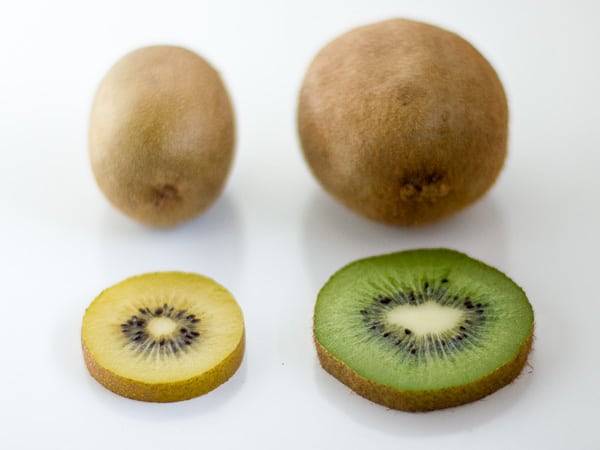Revealing the Taste: What Do Kiwis Taste Like-- A Taste buds Pleaser
Wiki Article
A Deep Study Kiwi Farming: Revealing the Methods, Difficulties, and Prospective for Lasting Farming
In this article, we will certainly take you on a deep dive into the techniques, obstacles, and possibility for sustainable farming in the world of kiwis. Discover the optimum growing problems, sophisticated growing techniques, and the lasting methods that can unlock the complete capacity of kiwi farming.Optimum Expanding Conditions for Kiwi Plant Kingdoms

Cutting-Edge Cultivation Techniques
To maximize kiwi farming, utilize advanced techniques that boost performance and sustainability. One such method is precision farming, which uses sophisticated technologies like drones, GPS, and remote picking up to check and handle crops more effectively. Drones geared up with multispectral cameras can record high-resolution photos of kiwi plants, allowing farmers to assess their wellness and discover any indicators of illness or stress. General practitioner innovation permits exact mapping and tracking of the kiwi creeping plants, optimizing watering and fertilization techniques to guarantee that each plant obtains the required nutrients and water. Another innovative technique is vertical farming, which entails growing kiwi plants in piled layers using man-made lighting and climate-controlled atmospheres. This method makes best use of land usage effectiveness and lowers water consumption, making it ideal for city locations or areas with limited cultivatable land. In addition, aeroponics and hydroponics systems are obtaining appeal in kiwi cultivation. These soilless growing approaches offer plants with a nutrient-rich option or haze, respectively, promoting faster development and greater yields. By accepting these sophisticated techniques, kiwi farmers can achieve higher performance, optimize resource use, and add to lasting farming practices.Obstacles Encountered by Kiwi Farmers
Encountering countless obstacles, kiwi farmers need to browse with numerous obstacles to make certain successful growing and sustainable farming practices. Among the significant obstacles they deal with is climate variability. Kiwi plants call for a details environment to prosper, with great wintertimes and warm summers. However, unpredictable climate patterns, such as extreme temperatures, frost, and dry spell, can interrupt the growth and advancement of kiwi crops. Farmers have to frequently keep an eye on weather prediction and execute strategies like watering, frost protection, and color cloth to minimize the unfavorable effects of climate irregularity.One more substantial challenge for kiwi farmers is parasites and diseases. Kiwi vines are vulnerable to an array of pests, including termites, aphids, and thrips, which can harm the leaves and fruit. Additionally, illness like Psa (Pseudomonas syringae pv. actinidiae) and botrytis can severely affect kiwi manufacturing. Farmers have to employ integrated bug monitoring techniques, such as regular tracking, biological control approaches, and correct cleanliness, to protect against and manage bug and condition episodes.
Kiwi growing requires labor-intensive activities, such as pruning, trellising, and harvesting. Discovering skilled workers who are well-informed about kiwi farming strategies can be challenging.
Sustainable Farming Practices for Kiwi Growing

To make sure lasting kiwi cultivation, you can carry out an array of practices that promote ecological stewardship and long-term practicality of your ranch. Kiwi plants call for a substantial amount of water, however too much irrigation can lead to water waste and soil erosion. Embracing lasting power practices, such as using solar power or investing in energy-efficient innovations, can decrease your ranch's carbon footprint and contribute to a more sustainable kiwi growing system.
Opening the Possible of Kiwi Farming
By implementing sustainable farming practices, you can unlock the full capacity of kiwi farming while lessening ecological influence. Kiwi farming has tremendous possibility for development and profitability, but it also comes with its own set of difficulties. To completely open this capacity, it is critical to take on lasting strategies that not just make the most of yield and quality but also ensure long-term viability.One secret facet of opening the possibility of kiwi farming is enhancing irrigation methods - what do kiwis taste like. Kiwi plants need a particular quantity of water to grow, and by making use of reliable watering systems such as drip irrigation or precision lawn official site sprinklers, you can lessen water waste and decrease the risk of waterlogging or dirt disintegration
One more important factor is dirt health internet and wellness administration. Productive and healthy dirt is crucial for the development and development of kiwi plants. By implementing techniques such as cover cropping, plant turning, and organic fertilizing, you can enhance soil structure, boost nutrition availability, and reduce the requirement for chemical inputs.
In addition, integrated look at this web-site insect monitoring (IPM) methods are essential in opening the capacity of kiwi farming. By adopting IPM methods such as biological parasite control, pheromone catches, and crop surveillance, you can efficiently take care of insects and conditions while lessening using chemical pesticides.
Final Thought
In conclusion, kiwi farming holds terrific possible for sustainable farming techniques. By implementing sophisticated techniques and getting rid of the challenges dealt with by farmers, we can open the full capacity of this fruit (what do kiwis taste like). With optimum growing conditions and a concentrate on lasting practices, kiwi farming can prosper while minimizing environmental effect. So, order a kiwi and support the future of sustainable farming!Discover the ideal expanding problems, cutting-edge cultivation methods, and the lasting methods that can unlock the full capacity of kiwi farming. By accepting these innovative strategies, kiwi farmers can attain better performance, optimize resource utilization, and contribute to sustainable farming practices.
Facing numerous challenges, kiwi farmers should navigate through various obstacles to ensure successful growing and sustainable farming methods.By executing sustainable farming practices, you can unlock the full possibility of kiwi farming while decreasing ecological influence.In final thought, kiwi growing holds excellent prospective for lasting farming techniques.
Report this wiki page